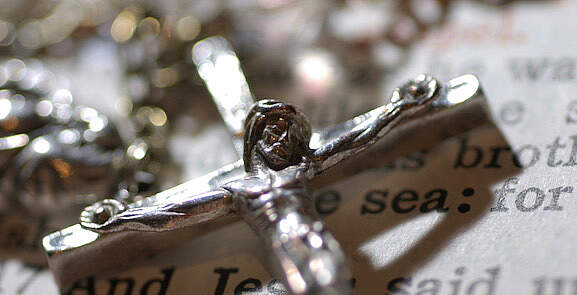
Sometimes we hear it said, with some condescension: "The Rosary is the prayer for the poor." Wouldn’t it be more appropriate to say that it is for all of us who are poor? What makes us rich or poor?
· The poverty of the hours of helplessness, which leave us with no strength, no desires, no certainties.
· The good poverty of happy days, which is another name for freedom of heart, which makes us available to God and to others, a fresh clay for the inspirations of the Spirit.
· The kind of peaceful Easter poverty, on the days when Jesus brings His glory into our daily lives, revealing to us how much we are loved, looked after, called and understood by a God who works wonders.
The Rosary is a string of moments where Mary, Mother of Jesus, brings us her presence and her intercession, as during the beginnings of the Church, when disciples gathered in the Upper Room and Mary "was there," awakening their prayer with her prayer.
The Rosary is the spontaneous prayer of our painful, joyful, and glorious hours that are our own mysteries, or rather the trace in us of the central mustèrion, which is God's plan revealed in Jesus Christ.
What happens in this paradoxical prayer of the Rosary, where the words are there to keep our eyes open, to give rhythm to the memory, like an ostinato on which the heart improvises? It is simply a filial imitation that imprints in us the icon we contemplate.
If Mary can meet us so easily in our mysteries, it is because she used to keep all things in her Heart; she would continually scrutinize the mysteries, the saving moments of the life of Jesus. The Rosary allows us to inhabit her gaze, to commune with her listening, and to enter into resonance with the prayer of her heart.
There are many ways to cross a garden. One might think that the most enriching way is to look at the flowers. But there is an attitude that is even more fulfilling, more transforming, more impoverishing: it is to let the flowers look at you.
The Rosary is a bit like that: it is a way of placing oneself, with the heart of a pauper, under the radiance of the life of Jesus. It is a way of letting Jesus look at you, as Mary did, throughout the day.
Father Jean Lévêque, from the Carmel of the Province of Paris